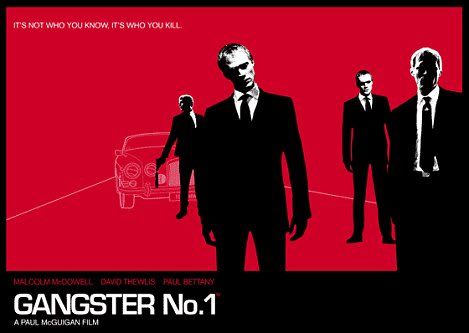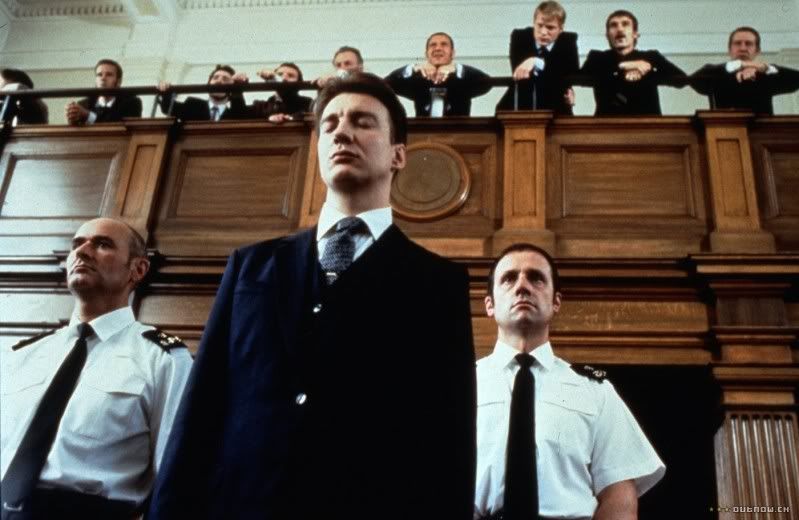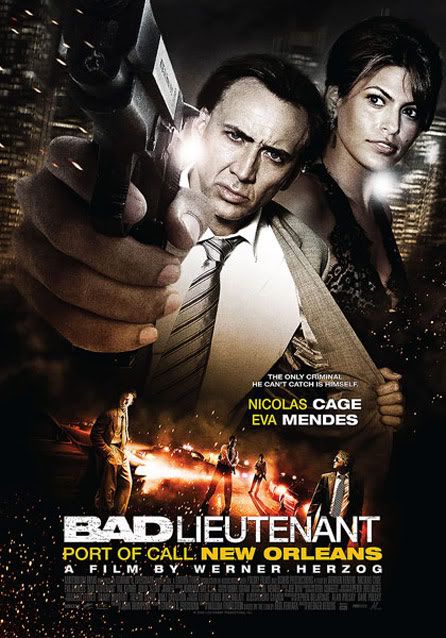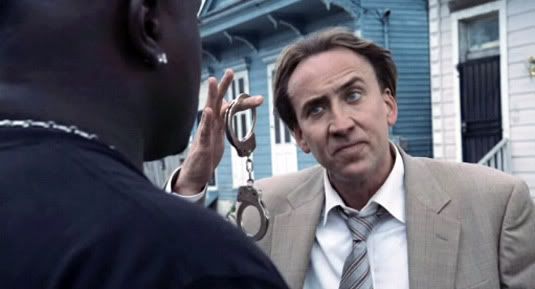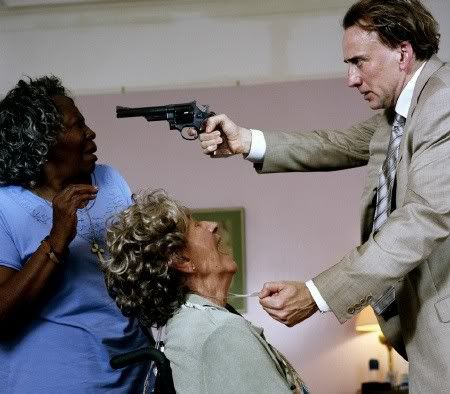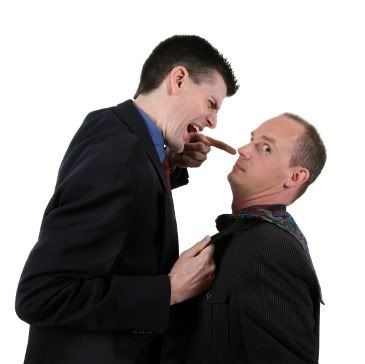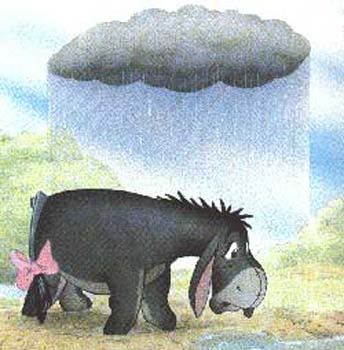
I’ve had vampires on my mind lately. Between writing the draft of Cold Streets, seeing the season finale of True Blood (that’s another post entirely…) and chatting via Twitter with Justin Achilli, I’ve been wondering how Vampire: the Masquerade might be improved. I don’t see Vampire: the Requiem as an improvement, merely a sequel or perhaps another permutation of the game. It’s not strictly better, in my opinion, nor is it discernibly ‘worse’, it’s just different. Masquerade has been my jam for many a year, and I still remember games played within that world fondly. I do think some things could be done to make the setting more interesting, however, and allow for more character exploration and nuance without sacrificing atmosphere.
Get Rid of the Sabbat
As much as I appreciate a good villain, the Sabbat really aren’t good villains. Whenever the idea of blatant rule of humans by vampires comes up, it’s always a bad one. In a game where the notion is to explore mature subject matter such as temptation, the degradation of humanity in the face of power, and what it means to be a monster wearing human skin, an establishment of monolithic evil undercuts the purpose. You can still have dramatic tension and meaningful moments of powerful self-discovery, along with power-mongering, scheming, seduction, and betrayal, without needing to conjure a boogeyman that likes skinning babies for fun. The Sabbat are completely unnecessary, superfluous to the crux of the gameplay, and actually kind of silly when you think about it.
That said, while the antitribu can easily bite the dust I still appreciate the two major clans involved with the Sabbat. So what becomes of them?
Refine the Tzimisce
The fact that the vampires of the Tzimisce bloodline exhibit a mentality and behavioral code far different from any other creature is a lot more interesting to me than their role in the aforementioned Sabbat. When I think Tzimisce, I think classic figures such as Dracula or Elizabeth Bathory. They’re the kind of creature to hide in plain sight, to prey upon those who least suspect them, and cloak their predatory nature with designer clothing or Stepford smiles.
In short, I think the Tzimisce should live in the suburbs.
Think about it. In classic tales the vampire always has a secluded, sprawling manor house. You really don’t know there’s something weird going on until you step inside. A cunning Tzimisce, in my mind, would wear a human skin the way you or I wear slacks to a day job – as soon as you get home, you change into something more comfortable. Sure, it’s fun to dress in fetish clothing and march around to Rammstein, but it’s not very subtle or nuanced. And since subtle and nuanced is what I prefer to go for, that old viewpoint of the Tzimisce needs to go the way of the Sabbat. Instead of shaking a mailed fist at the Camarilla for foiling their plans once again, I much prefer the image of a Tzimisce living a quiet, genteel life of grabbing meals and experimentation subjects out of golf clubhouses, high-end cocktail parties, and corporate gatherings, available to impart some ancient secrets on the curious and the daring… for a price. Some may still maintain chambers of horrors under their gated communities, and others may simply prefer to read a good book by the fire after an evening meal. Don’t limit the clan to a single stereotype; establish some parameters and let the player fill in the blanks as they see fit.
They would tend to stay out of the cities because of the Tremere, which I’ll get to in a moment.
Isolate the Lasombra
Without the Sabbat, what becomes of the Lasombra? One of my absolute favorite clans, their powers over shadows and penchant for manipulation behind the scenes makes them excellent schemers and hidden threats. As much as a member of the Lasombra might crave power, it often takes the form of having influence over the supposedly powerful, rather than being in charge themselves. An ideal Lasombra, in my mind, is not the kind to bark orders at neonates like a drill sergeant. They’re more (you guessed it) subtle than that.
They’ve always been good rivals for the more traditional political leaders of the Camarilla, the Ventrue and the Toreador. My inclination is to underscore that by, in essence, putting a single Lasombra at the opposite end of a chessboard from a given city’s Prince. The Lasombra test those in power, evaluating their worthiness through challenges, manipulations and even threats. Not direct ones, of course, but threats manufactured to see what the Prince and their city are made of. If the Prince proves themselves worthy, reward them by manipulating others in the city to their benefit (and the Lasombra’s); if they don’t, engineer their replacement. This change could make the Lasombra out to be some kind of dastardly arch-villain, and some of them may lean that way, but again, the notion is to establish unique parameters and let people fill in the blanks themselves. Sure, some may go for the Moriarty or Hannibal Lecter angle, playing up the superficially antagonistic role, but others may approach the city as an experiment, a giant living Petri dish in which the behaviors, reactions, and merits of those in control are to be tested. Still others may see themselves as performing a vital service for the Prince, ensuring they remain in power. Hell, why not conspire with the Prince directly if the Lasombra in the city considers them worthy? There are possibilities here, more than might be afforded by the Sabbat.
Galvanize the Tremere
Justin posed this question: why aren’t the Tremere the good guys? If order is good for society and vampires, and chaos is bad, why is an ordered clan like the Tremere seen as a bad thing? “When you hear about the Tremere ‘searching for an artifact,’ you immediately conclude, ‘someone has to stop them!'” The Tremere are usually seen as gaming for political positioning, trying to get one up on the Ventrue or the Prince or somebody else who’s in power, and while this is traditionally vampiric behavior, with its structure and clear hierarchy, I think the Tremere are more suited for another role entirely.
Basically, I’ve always though the Tremere would make great cops.
There’s a lot of ways this could go. The Tremere in one city could operate like detectives from L.A. Confidential or Law & Order, while in another they are essentially the Gestapo. But the overarching mentality of the clan would be to protect the Kindred of the city, safeguard the innocent, and enforce the Traditions. They have powerful tools to investigate crime, pursue offenders, and bring them to justice. Instead of using these powers to get an edge on other Kindred, they could be used for a greater good, which in and of itself becomes an edge. And the dynamic within the city remains fluid. Some may respect the Tremere and what they do, while others harbor a deep hatred for authority figures and especially cops. And there are a slew of stories in which cops go bad; a corrupt Tremere would be an anomaly, but would also be a dangerous quantity. If a Lasombra gets some dirty on a Tremere, or the Giovanni name the right price, how will the Tremere’s clan mates find out and deal with them? And what about a member of the Tremere going undercover to investigate whispers of conspiracy among the other clans?
Some things to think about when it comes to vampire storytelling.


